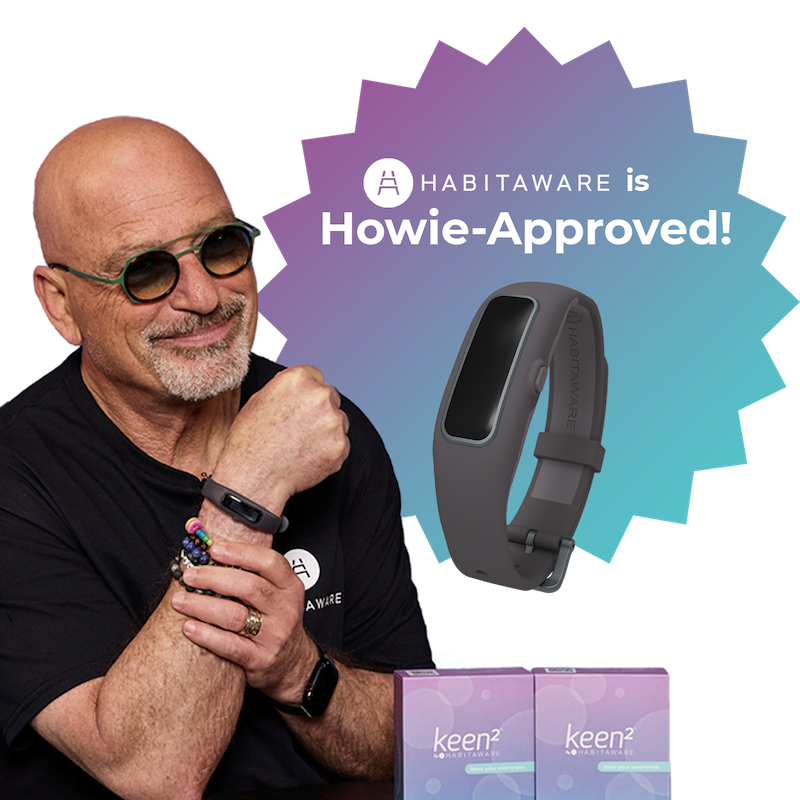Alison Dotson is a mental health advocate & a new friend! Though Alison & I both live in the Twin Cities, it took Mental Health friends across the globe to make our introduction happen! I met Alison through Stuart Ralph, a Brit whom I met virtually via Liz Atkin & in person at the 2017 International OCD Foundation Conference.

Stuart has devoted his podcast to sharing The OCD Stories & I was lucky enough to be a guest a few months ago to share my BFRB journey with his audience, because OCD & BFRBs are like evil cousins.
When Stuart realized I was in Minneapolis, he said, “Have you met, Alison?” I hadn’t so he made the connection and Alison and I met for coffee. Soon after, I asked her to join me for an “art therapy & advocacy” event where we both fell in love with the ever-cathartic #BlackOutPoetry.
Alison is author of Being Me with OCD: How I Learned to Obsess Less and Live My Life, a nonfiction book for teens and young adults with OCD that shares her story as well as coping strategies. She is also the president of OCD Twin Cities, an affiliate of the International OCD Foundation, and the 2016 recipient of the International OCD Foundation Hero Award.
I want to share her story of taking control of her Obsessive Compulsive Disorder (OCD) because there are so many parallels with Body Focused Repetitive Behaviors (BFRBs). Both steal our joy and our control over our mind. Some of us may even have both. In fact, it’s taken me this HabitAware journey to unpack all my layers of mental un-healthiness. But the more I’ve learned, the more aware I’ve become, the easier it has been to show up and make a plan of action to take back control.
SO, WHAT IS OCD?
OCD has very little to do with keeping things neat & organized. That is a huge misconception! OCD can cause life disrupting anxiety. Everyone has intrusive thoughts sometimes, but when you have OCD it is invasive and won’t go away. Examples include excessive concerns with right and wrong, fear of harming others, perfectionism, and contamination. Compulsions are repetitive behaviors of thoughts used to get rid of an obsession. The more you engage in a compulsion, the worse and stronger the obsession gets. People with OCD feel the need to engage in compulsions in order to get rid of the obsessive thoughts and the accompanying paralyzing and life disrupting anxiety they’re experiencing. Examples of compulsions include mental reviewing, seeking assurance, and checking behaviors – like hand washing, locking the door or turning off the stove.
HOW ALISON IS SHOWING UP FOR OCD AWARENESS
As Alison shares on her blog, “My hope is that writing about OCD will shed some light on the disorder and encourage people to get the help they need. Since I reached out to an OCD specialist several years ago, I’ve been doing well. I’m armed with great resources and coping techniques, so even when obsessions do pop up I know how to deal with them.”
Here’s my interview with Alison on why and how she is speaking out on the misconceptions about Obsessive Compulsive Disorder and helping others.
Aneela: What’s your story, morning glory?
Alison: Hi! My name is Alison Dotson. I live in Minneapolis, Minnesota, with my husband and our two dogs. Pretty much everything I do, whether it’s related to work or play, stems from my love of reading and writing. I work as a copy editor and brand voice advisor at a marketing company, and in my free time I read lots of fiction, write blog posts and book drafts, and volunteer my editorial skills for a nonprofit called A2A Alliance. Of course, I also do just plain fun things like watch TV, go to movies, and meet friends for dinner, and I work on little home improvement projects when I can.
Since I have obsessive-compulsive disorder (OCD) and suffered for so long due to misconceptions about what it really is, I now work to spread awareness of the disorder. I wrote a book for teens with OCD, called Being Me with OCD: How I Learned to Obsess Less and Live My Life, and I run a local nonprofit called OCD Twin Cities, which is an affiliate of the International OCD Foundation. Although public speaking terrified my for years, I overcame that fear so I could help others, and I’ve spoken at several conferences and support groups. I get nervous every time, but it always turns out okay in the end!
Aneela: Why do you show up & speak about mental health?
“There’s no reason people with OCD need to suffer endlessly.”
Alison: I speak about OCD so others don’t have to suffer as long as I did, and to let them know they’re not alone. It’s such an isolating disorder, and it can cause so much shame. There are still misconceptions about OCD–i.e., that it’s all about being organized or having a germ phobia–so I can’t stop talking about it just yet. Before I was diagnosed with OCD I felt incredibly alone and really hopeless. I was afraid I’d never get better or be happy again. There’s no reason people with OCD need to suffer endlessly. Showing up and speaking about mental health disorders is my way of paying it forward.
Aneela: Have you ever felt personally stigmatized?
Alison: Not stigmatized as much as misunderstood, which is frustrating. I’ve gotten better at standing up for myself and others with OCD, but there are definitely times I let my feelings get the better of me and I’m perhaps not as gracious as I could be with people who don’t get it yet.
Aneela: How did your friends / family react when you shared your issue with them?
Alison: As soon as I was diagnosed, I called my then boyfriend (now husband of 10 years) and said, “Your girlfriend has OCD.” He said, “Sounds about right.” Then I think he asked what I wanted for dinner. It was very normalizing. My mom was supportive but also felt really guilty that she hadn’t known what was going on. However, I assured her that she did in fact notice when I was depressed, but I lied to her and told her nothing was wrong or that it was a stomach-ache or something. I kept it all to myself out of shame.
< Give awareness a chance and get off the shame track! Get your Keen habit tracker today! >
Aneela: What is one thing you would tell someone who might be struggling in silence?
Alison: If you have OCD, you’re not alone! There are so many of us getting braver and braver about showing up and sharing our stories. Not all obsessions and compulsions are alike, but we share a diagnosis nonetheless and can support each other. We’ve all thought we’re the only person on the face of the earth who’s had the scary intrusive thoughts we’ve had, but it’s not the case. And I’ve never met a person with OCD who hasn’t doubted their diagnosis and feared it was actually something worse.
Aneela: What is one of your favorite strategies that have helped you take control of your disorder/issue/mental health?
“Telling my story, whether in a presentation, an article, or a social media post, has empowered me. ”
Alison: I kept my “secrets” to myself for nearly two decades. I’ve cracked that silence wide open and allowed myself to be vulnerable. Telling my story, whether in a presentation, an article, or a social media post, has empowered me. Each time I think, “This may be the one-time people judge me and attack me,” and it never is. It’s made me stronger–and a huge part of tackling OCD – or BFRBs – is facing our fears head-on.
Thank you, Alison for taking time to show up, meet me & share your story. Proud to call you a friend and to work with you on this mental health equity battle!

Love + awareness,
Aneela & the HabitAware team



